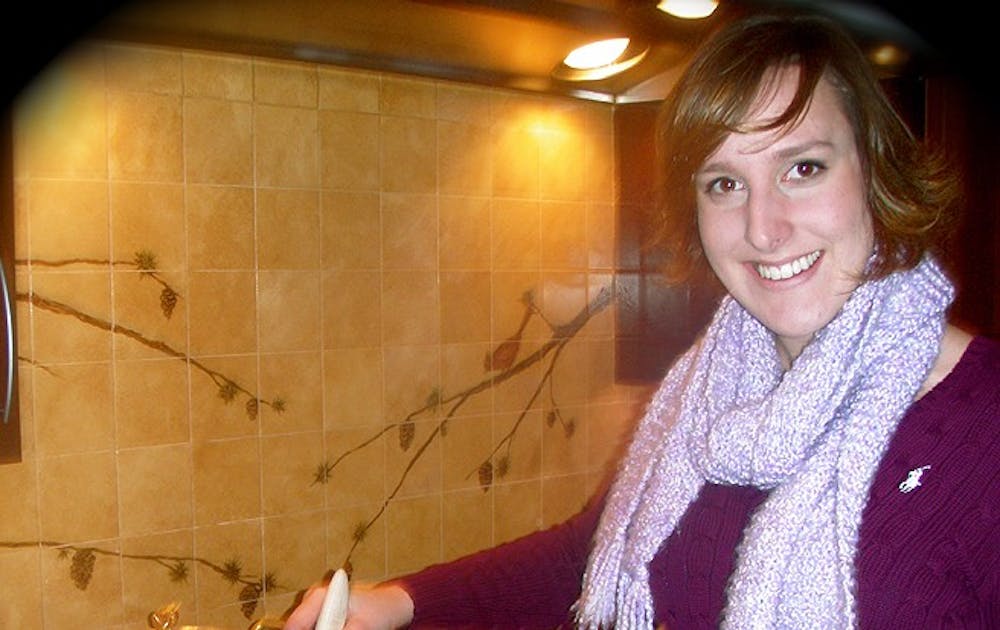Graduate student Ashley Young is aiming to redefine what it means to be a foodie.
Young’s current research—focusing specifically on the American South of the nineteenth century—aims to show how urban food markets impacted the era’s ethnic fusion of recipes. Analyzing the typical New Orleans dish, gumbo, she illustrates how various cultures intermingled to form the unique meal.
“Food has always been globally connected,” Young, who is pursuing a Ph.D. in history, said. “Food is just that common denominator. Everyone eats.”
Gumbo, she noted, represents the ideal mixture of cultures, combining key aspects of French cuisine—onion and celery —with bell peppers, exemplary of the Creole tradition, and okra, rooted in West African traditions.
Young noted that her fervor for food and history was practically predetermined from birth.
“My [topic of study] is a perfect marriage of my parents’ interests,” Young said. “My father was a high school history teacher, and my mother and aunts own a gourmet food business in Pittsburgh.”
Still, her path to culinary history was lined with diverging trajectories. She entered freshman year at Yale University intending to major in evolutionary biology, but instead she underwent her own evolution.
Young’s best friend at Yale, Sarah Dewey, witnessed her transformation firsthand and noted that it was an effect of her education.
“She is the cardinal example I use when explaining the transformative quality of a liberal arts education to people—the opportunity to define oneself is always available, with the right initiative and love of learning” Dewey wrote in an email Thursday. “Ashley’s growth in college was a process of becoming who she is.”
Although eventually settling on a history major, Young came upon her dissertation topic seemingly out-of-the-blue.
“One day, as I was looking at the internship database at Yale, I came upon the Southern Food and Beverage Museum [in New Orleans],” Young said. “I thought, huh? History and food, why not?”
The experience changed her life, exposing her to the world of postbellum cookbooks and the subtle cultural ideology that lay within them. Thus, the idea for Young’s senior thesis was born.
Abandoning her original topic on the American Revolution, she decided to explore all that Southern food culture had to offer.
“The [cookbook] introductions just had racialized portrayals of black women who’d be working in the homes of white families, and they had conversations about the evolution of Creole cuisine,” Young said. “I wanted to unearth why these authors wrote about their food history in this way and why it was so imbibed with ethnic references and racial history.”
Upon finishing her senior thesis, Young saw an opportunity to live out her childhood dream of getting a doctorate while expanding the ideas behind her dissertation with world-class professors, such as Laura Edwards, professor of history and Young’s current graduate advisor.
Edwards was immediately impressed when she read Young’s dissertation proposal, noting the originality of her project.
“She wanted to use food as a window on broad topics in U.S. history, such as economic development, conceptions of citizenship and American identity, race and ethnicity, and the development of the nation,” Edwards wrote in an email Thursday. “She brings her enthusiasm and her incredibly original way of looking at the past into the classroom.”
Correction: An earlier version of this article suggested that Young uses carrots in her gumbo recipe and that her mother and aunt own a gourmet food business. She does not use carrots, and her mother actually owns the business with two aunts.
Get The Chronicle straight to your inbox
Signup for our weekly newsletter. Cancel at any time.

